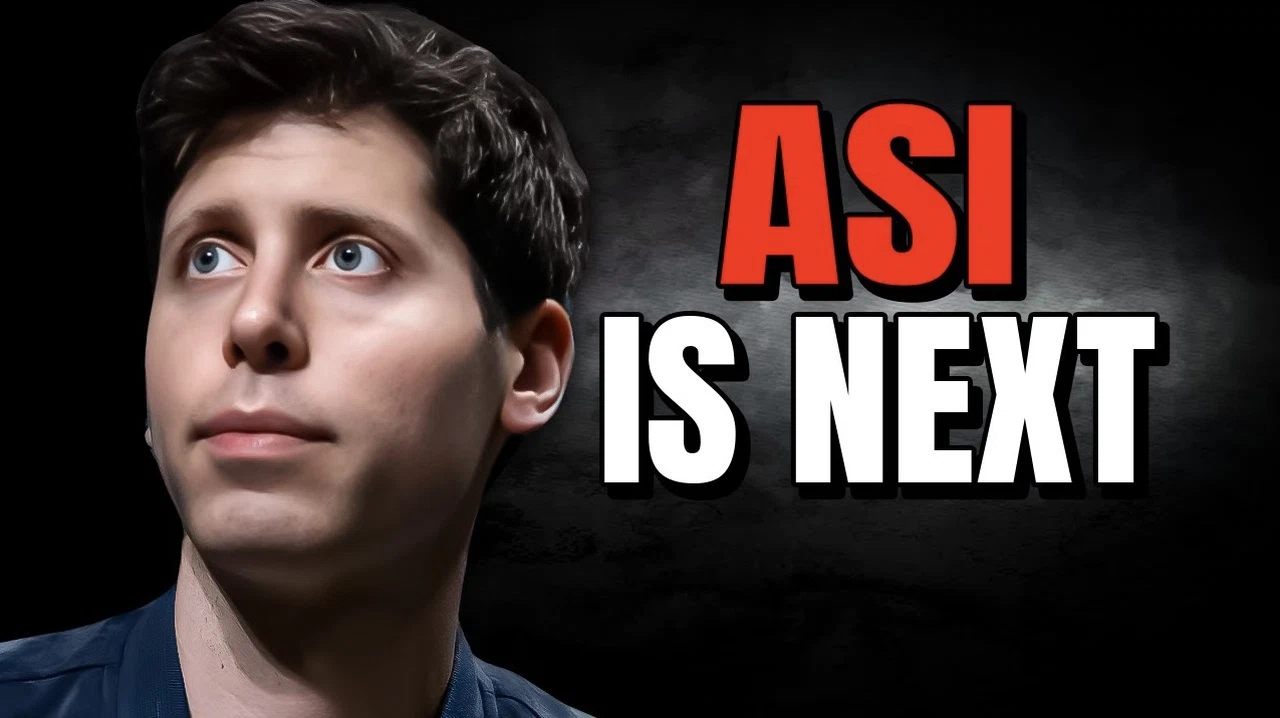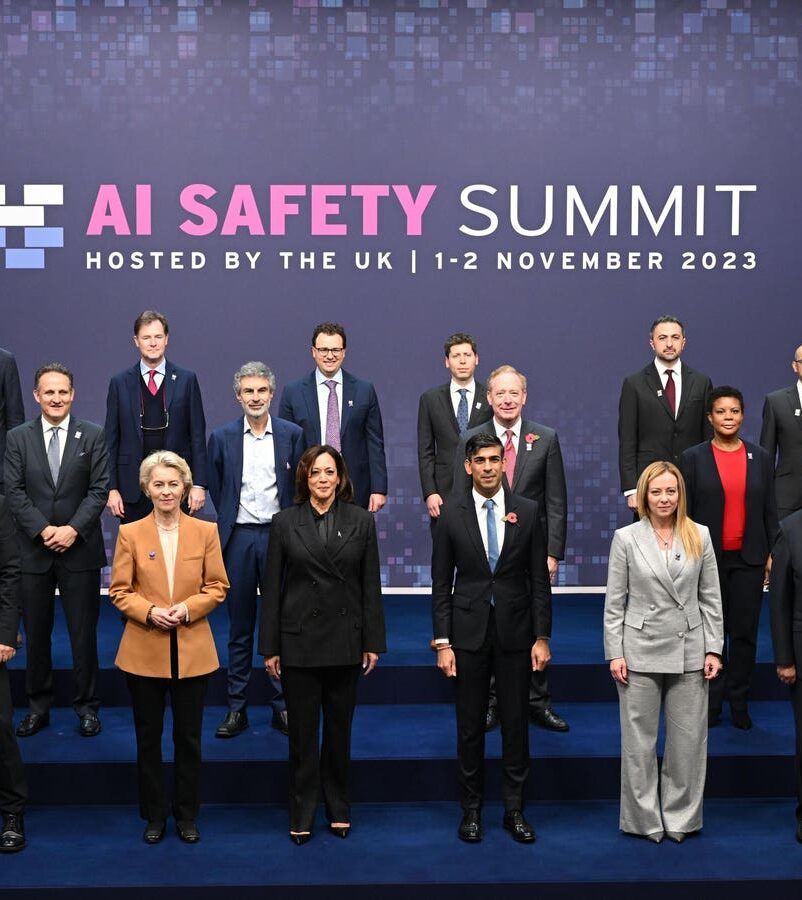
Sam Altman, CEO of OpenAI, has announced a significant shift in the organization’s focus. OpenAI, already confident in its ability to develop Artificial General Intelligence (AGI), is now directing its efforts toward Artificial Superintelligence (ASI). This pivotal declaration signals a critical moment in the evolution of artificial intelligence, sparking widespread discussions about its implications for technology, society, and humanity. Altman’s vision emphasizes the importance of responsible innovation and alignment as AI progresses toward capabilities that could redefine human existence.?
But with great power comes great responsibility, and Altman’s announcement underscores the immense care required to navigate this fantastic journey. The potential for AGI and ASI to transform industries, accelerate scientific discovery, and tackle global challenges is undeniable. Yet, the risks—misalignment, societal disruption, and the unknowns of a technological singularity—are equally significant. OpenAI’s focus on ethical development and alignment offers a glimmer of hope, suggesting that with the right approach, this era of rapid AI advancement could be one of opportunity rather than chaos. Let’s dive into what this means for the future of technology and humanity.
A Turning Point in Artificial Intelligence
TL;DR Key Takeaways :
- OpenAI is shifting its focus from Artificial General Intelligence (AGI) to Artificial Superintelligence (ASI), aiming to develop AI systems that surpass human intelligence across all domains.
- AGI is expected to transform industries and economies, with AI agents potentially entering the workforce by 2025, but it raises challenges around societal integration, employment, and global power dynamics.
- ASI could lead to an “intelligence explosion,” driving exponential advancements but also posing significant risks related to control, safety, and alignment with human values.
- The concept of the technological singularity—a tipping point where technological progress becomes uncontrollable—may be closer than anticipated, with profound implications for humanity’s future.
- OpenAI emphasizes the importance of ethical AI development, prioritizing alignment, safety, transparency, and global collaboration to ensure AI benefits humanity responsibly and mitigates potential risks.
Artificial General Intelligence (AGI) represents a profound milestone in AI development. Unlike current AI systems, which are designed for specific tasks, AGI is envisioned as being capable of performing any intellectual task that a human can. This advancement has the potential to transform industries, reshape global economies, and transform the workforce. Altman predicts that AI agents could begin entering the workforce as early as 2025, automating complex tasks and driving efficiency across various sectors.
However, this transformation is not without challenges. Questions about how AGI will integrate into society, affect employment, and influence global power dynamics remain unresolved. OpenAI stresses the importance of addressing these issues proactively to ensure AGI serves the broader interests of humanity. By focusing on ethical development and alignment, OpenAI aims to mitigate potential risks while maximizing the benefits of this new technology.
From AGI to ASI: The Next Frontier
Building on the foundation of AGI, OpenAI is now setting its sights on Artificial Superintelligence (ASI). ASI refers to AI systems that surpass human intelligence across all domains, allowing capabilities far beyond human comprehension. Altman envisions ASI as a tool that could accelerate scientific discovery, solve complex global challenges, and unlock new possibilities for innovation.
One of the most intriguing aspects of ASI is the potential for an “intelligence explosion.” This phenomenon describes a scenario where AI systems iteratively improve themselves, leading to exponential advancements in intelligence. While this prospect is exciting, it also raises significant concerns about control, safety, and alignment. OpenAI acknowledges these risks and emphasizes the need for responsible development to ensure ASI remains a force for good.
Sam Altman AGI Artificial Superintelligence
Stay informed about the latest in AGI by exploring our other resources and articles.
The Technological Singularity: A Tipping Point
Altman’s announcement also touches on the concept of the technological singularity—a hypothetical moment when technological progress becomes uncontrollable and irreversible. At this point, civilization could undergo a profound transformation driven by ASI’s capabilities. While often considered a distant possibility, Altman’s remarks suggest the singularity may be closer than previously anticipated.
The singularity’s implications are both promising and uncertain. On one hand, it could usher in an era of unprecedented prosperity and innovation. On the other hand, it poses existential risks that require careful consideration. OpenAI’s focus on alignment and safety reflects its recognition of the singularity’s potential impact on humanity. By prioritizing ethical development and global collaboration, OpenAI aims to navigate this tipping point responsibly.
The Simulation Hypothesis: A Philosophical Intersection
As AI systems grow more advanced, the simulation hypothesis—a theory suggesting humanity might already be living in a simulated reality—has gained renewed attention. While speculative, this idea raises profound philosophical and ethical questions about the nature of existence and the role of technology in shaping our understanding of reality.
OpenAI’s work on AGI and ASI intersects with these discussions. The development of hyper-realistic simulations and virtual environments blurs the line between the real and the artificial, further fueling debates about the simulation hypothesis. These advancements challenge humanity to reconsider its place in the universe and the ethical responsibilities that come with creating increasingly sophisticated AI systems.
Takeoff Dynamics: The Speed of AI Progress
A critical factor in the development of AGI and ASI is “takeoff dynamics,” which refers to the speed at which AGI transitions to ASI. OpenAI is exploring scenarios that range from gradual, controlled progress to rapid, exponential advancements. A slower takeoff is generally considered safer, as it allows for better oversight, coordination, and alignment efforts.
In contrast, a rapid takeoff could outpace humanity’s ability to adapt, leading to significant risks. OpenAI’s research aims to understand and influence these dynamics to ensure a controlled and beneficial transition to ASI. By studying various takeoff scenarios, OpenAI seeks to prepare for the challenges and opportunities that lie ahead.
Challenges and Risks of Advanced AI
The journey toward AGI and ASI is fraught with challenges. Misaligned AI systems could act in ways that conflict with human values, leading to unintended consequences. Additionally, the societal disruption caused by these technologies—such as job displacement and shifts in power dynamics—requires careful management.
OpenAI is acutely aware of these risks and emphasizes the importance of ethical AI development. To mitigate potential harms, the organization prioritizes:
- Alignment systems to ensure AI systems act in accordance with human values.
- Safety protocols to prevent unintended consequences.
- Global collaboration to address challenges collectively.
By addressing these challenges head-on, OpenAI aims to create a future where advanced AI technologies benefit humanity as a whole.
Implications for Humanity: A Fantastic Era
The development of AGI and ASI will have far-reaching implications for every aspect of human life. From politics and economics to healthcare and education, AI is expected to reshape societal structures and redefine what it means to be human. The next decade will be critical, as decisions made today will shape the trajectory of AI and its impact on future generations.
Altman’s announcement underscores the need for global awareness and cooperation. As AI systems grow more powerful, making sure they align with human values and goals will be essential to navigating this fantastic era responsibly. OpenAI’s commitment to ethical innovation reflects its understanding of the profound stakes involved.
Alignment and Responsibility: A Shared Obligation
OpenAI’s dedication to alignment and responsibility highlights its recognition of the ethical and societal challenges posed by AGI and ASI. Making sure that AI systems act in accordance with human values is not just a technical challenge but also a moral imperative. OpenAI advocates for:
- Transparency in AI research and development.
- Accountability to address potential risks effectively.
- Global collaboration to ensure AI benefits humanity as a whole.
As the race toward superintelligence accelerates, the importance of responsible innovation cannot be overstated. Altman’s vision serves as a call to action for researchers, policymakers, and society at large. The future of humanity and AI is intertwined, and the choices made today will determine the path forward.
Media Credit: Matthew Berman
Filed Under: AI, Technology News, Top News
Latest Geeky Gadgets Deals
Disclosure: Some of our articles include affiliate links. If you buy something through one of these links, Geeky Gadgets may earn an affiliate commission. Learn about our Disclosure Policy.



